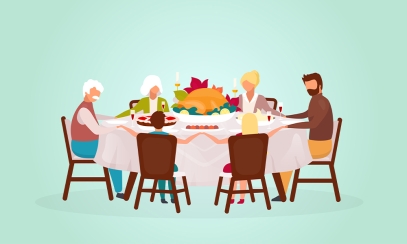
‘Be Not Afraid’
Coping in Times of Trial
Coping in Times of Trial
Walker Percy’s Love in the Ruins is a satirical and humorous depiction of a society that has gone insane. The protagonist, a psychiatrist, constructs a device that he hopes will both diagnose and solve the problems of a people and culture gone mad. The problem is he is the only person who seems to care about the negative events that unfold around him. Most characters in the story seem oblivious, unconcerned, or work to promote the disorder of the failing society.
Walker Percy’s Love in the Ruins is a satirical and humorous depiction of a society that has gone insane. The protagonist, a psychiatrist, constructs a device that he hopes will both diagnose and solve the problems of a people and culture gone mad. The problem is he is the only person who seems to care about the negative events that unfold around him. Most characters in the story seem oblivious, unconcerned, or work to promote the disorder of the failing society.
Fast forward 50 years from Love in the Ruins, and our society seems profoundly ailing. Sometimes, it is difficult to distinguish satire from reality. Symptoms of anxiety and depression have skyrocketed. People of all ages and walks of life are afflicted. However, today, virtually no one is oblivious, unconcerned, or unaffected by this pandemic of unwellness. Yet, the ways in which many people cope with symptoms of depression or anxiety are unhealthy, disordered, and lead to deep unhappiness, which diminish human flourishing.
Examples of unhealthy coping skills include:
- Abuse of alcohol or drugs
- Overeating
- Isolating oneself from friends, family, or their parish community
- Avoidance
- Inappropriate anger
- Inappropriate self-blame
- Not forgiving oneself or others
- Disordered sexual behavior
- Neglecting one’s relationship with God (prayer, Scripture, and the sacraments)
- Self-harm
- Retreating into a fantasy digital world (overuse of video games and social media)
It should be stated that no one can avoid difficulties and trials in this life. The Book of Job reminds us that our days are few and full of trouble. We are all subject to feelings of sadness, grief, loss, fear, and nervousness. Often these feelings are normal. The student who is anxious to pass a chemistry test diligently studies. The person who loses a friend or family member to death grieves. We will never have zero negative feelings, but we can choose healthy ways to deal with negative thoughts and feelings.
Examples of healthy coping skills include:
- Frequent participation in the sacraments (especially reconciliation and the Eucharist)
- Getting enough sleep
- Exercising
- Listening to music
- Spending time with friends, family, and parish community
- Writing down one’s thoughts and feelings in a journal
- Taking a vacation or fun day trip
- Reading a book
- Cultivating a hobby
- Taking care of and spending time with a pet
- Volunteering at a local men’s or women’s shelter
- Donating to a charitable organization
- Visiting a sick friend, family member, or parishioner
St. John Paul II began his pontificate with the words, “Be not afraid.” We cannot avoid the storms of life. They can feel overwhelming; however, the same Jesus Who commanded the wind and water to cease from raging is with us today. Turn to Him and cooperate with His grace. And if symptoms of anxiety and depression persist, speak to your local deacon, priest, youth director, parish staff, friend, or physician to obtain a referral to a caring mental health professional.
Scott Bowen is a social worker at Catholic Family Services in Birmingham. He holds a master’s of divinity degree and is a licensed independent clinical social worker.



